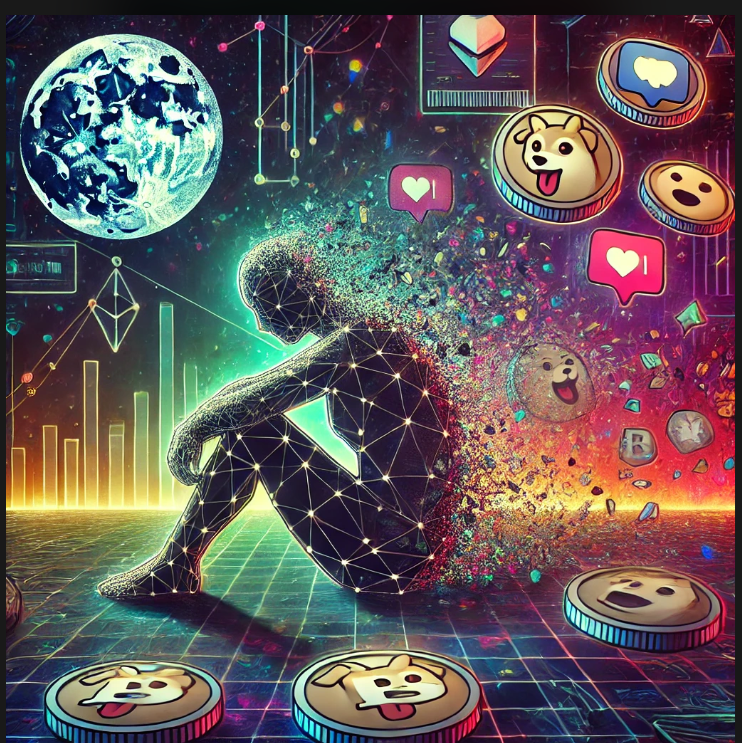Unpacking Societal Challenges and Crypto Trends
I just watched a video on YouTube shared by hivedrip where the speaker talks about the influence of societal challenges on the ongoing bullishness in cryptocurrency, particularly the meme tokens. These challenges include "loneliness, sexlessness, and mental health issues." According to the speaker, this trend is accelerating in our time. I am not aware of any research on these topics. Nevertheless, I find them interesting and worrisome at the same time. If his analysis is accurate, this makes me wonder why a generation that boasts about innovation in communication and is interconnected and characterized by sexual permissiveness remains lonely and sexless.

Moreover, our time is also described as a therapeutic age. If I am not mistaken, particularly in the West, the number of mental health experts is also accelerating; why, despite such an increase, do people struggle with mental health issues? This reminds me of the question raised in our biblical counseling class: whether the increase in the number of mental health experts is the cause or the outcome of the increase in the number of mental health issues in our time.
The speaker believes that the ongoing bullishness in cryptocurrency, particularly meme tokens, is deeply intertwined with societal challenges such as loneliness, sexlessness, and mental health issues. When I asked AI about this, the bot identified three primary causes for this trend: psychological, social, and economic.
Psychologically, it is natural for individuals struggling with isolation or emotional distress to look for escape or stimulation. Somehow, the volatile nature of meme tokens brings excitement, not to mention the anticipated promise of quick gain. I am not so sure up to what extent these meme tokens develop a sense of belongingness via digital communities. If this is true, those who feel disconnected in their real lives find a common cause that they consider worthy of their time.
How about the sociological aspect? It is believed that the culture of meme tokens thrives in the digital space. People who feel isolated in their personal lives find these online communities as a replacement. Moreover, in a society where relationships disappoint and conventional criteria for success appear so distant, at least one can have a sense of belongingness and his existence validated even in a community that gathered for the sake of expected incentives via the meme tokens.
Lastly, the economic cause is another worthy factor to be considered. The younger generations find the meme tokens attractive for the perceived opportunities they provide. The disenfranchised, those who struggle with the existing financial system, the meme tokens symbolize a revolt against established financial institutions. Mix it with humor and anti-establishment sentiment; this creates a shared narrative.
Whether the observation of the speaker as a whole is accurate or not, that is open for discussion. Nevertheless, I can relate personally to some of the specifics he mentioned, though not necessarily the connection to the meme tokens as such but to the digital space as a whole. Besides, I only mention here one of the trends he enumerated. He identified eight of them, and I found three of them very interesting. The other two include the diminishing influence of religion in society and the crisis of meaning. I hope to explore them in the next articles.
Grace and peace!
Posted Using InLeo Alpha
